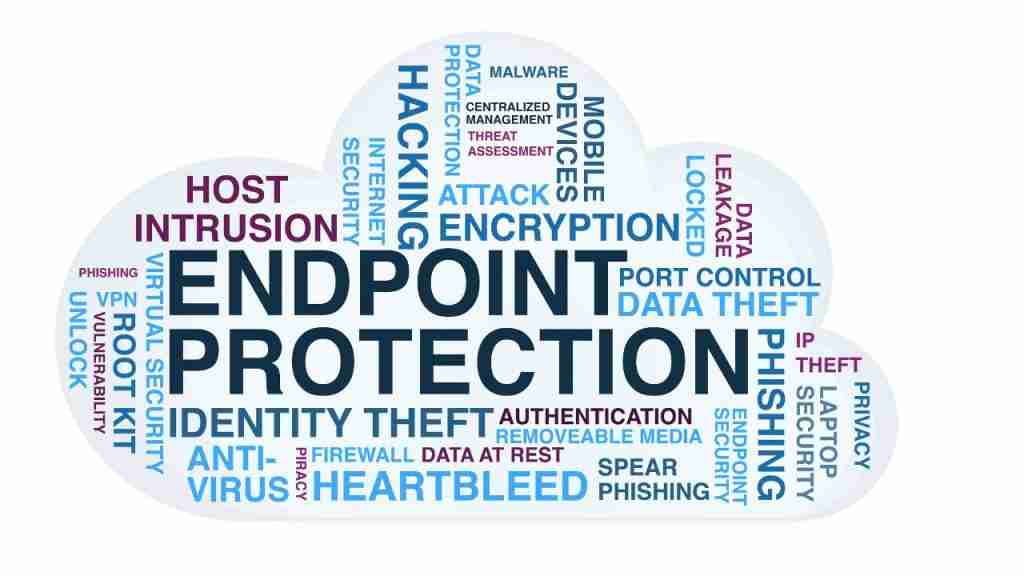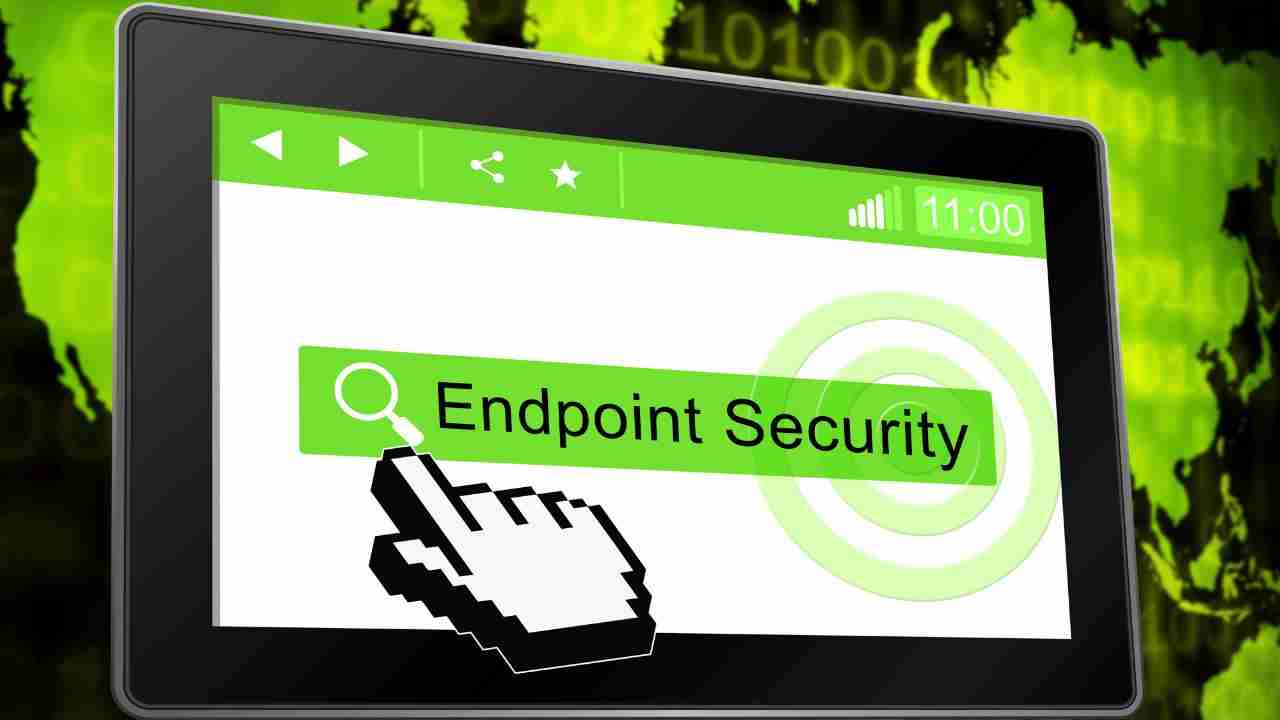One unprotected device could put a whole healthcare network at risk, which is scary to think about. Endpoint security solutions are very important in the healthcare field to keep patient’s information safe and the business running. But in the competitive world of healthcare, these answers are not only needed, they are important for survival.
The threats we face are changing and becoming more diverse, which is why TTR Technology has the best options for keeping healthcare companies’ endpoints safe. Every device that interfaces with your network receives protection, ensuring the safety of patient information and uninterrupted processes.
What is the endpoint security solution?

Endpoint security is the process that helps secure endpoints, which are desktops, laptops, mobile phones, and tablets used by end-users. The solutions relate to specific software, hardware, and policies that aim to secure these devices from malicious users. It is the first line of defense to ensure that only trusted devices can get into the network and conform to the organizational security mandates.
Endpoint security solutions operate by managing and inspecting these devices, as well as identifying any unusual activities that may occur. It also acts as a response mechanism to prevent many threats from arising. This ranges from simple antivirus and firewall software to advanced IDS/IPS appliances and various types of new-generation machine learning products that can detect and prevent attacks.
The 3 Main Types of Endpoint Security To Protect Organizations
1. Antivirus and Antimalware Solutions
These are the fundamental kinds of endpoint protection specifically designed to identify and eliminate dangerous malware from devices. They scan files and programs to detect and identify known malware signatures and behaviors.
2. Endpoint Detection and Response
EDR solutions provide continuous monitoring and analysis of endpoint activities to detect suspicious behaviour in real time. They offer advanced threat detection capabilities and can respond to threats by isolating or removing them.
3. Unified Endpoint Management
UEM (Unified Endpoint Management) solutions let a company manage and protect all of its devices in a unified way. They combine different security features on a single platform, like protecting data and managing devices and apps. This makes sure that all devices follow the same security rules.
What are the endpoints in cyber security?
In cybersecurity, an endpoint is any device that connects to a network and communicates with other devices within that network. Common examples of endpoints include:
- Desktops and laptops
- Smartphones and tablets
- Servers
- IoT devices
- Point-of-sale (POS) systems
- Healthcare uses medical devices.
Each of these endpoints represents a potential entry point for cyber threats, making their security critical to the overall security posture of an organization.
6 Endpoint Security Components to Protect Healthcare Data
Effective endpoint security solutions consist of several essential components:
1. Antivirus and Antimalware Software
These components are essential for identifying and removing malicious software from devices.
2. Firewalls
Firewalls help to block unauthorized access to devices and networks by monitoring and controlling incoming and outgoing network traffic.
3. Intrusion Detection and Prevention Systems
These systems monitor network traffic for suspicious activity and can take action to prevent attacks.
4. Data encryption
Encryption ensures that data stored on endpoints and transmitted across networks is secure and unreadable by unauthorized parties.
5. Endpoint Detection and Response
EDR provides advanced monitoring, threat detection, and response capabilities to identify and weaken complex threats.
6. Patch Management:
Regular updates and patches for software and operating systems are critical to fixing vulnerabilities and preventing exploitation.
Benefits of Endpoint Security Solutions For The Healthcare Industry

- It protects against advanced cyber threats, such as zero-day attacks and ransomware.
- The system utilizes machine learning and artificial intelligence for proactive threat detection.
- The system protects sensitive patient data from unauthorized access and breaches.
- It ensures that rules like HIPAA are followed, which keeps businesses from getting fined or jailed.
- By stopping cyberattacks before they happen, the system ensures that healthcare services don’t stop.
- It lessens the potential damage that leaks could cause, reducing downtime and repair costs.
- Endpoint security keeps financial losses from data leaks and attempts to fix them to a minimum.
- This approach reduces the need for costly incident response and recovery processes.
- It aids in fulfilling careful regulatory obligations and running away from fines.
- The system ensures that data protection measures align with industry standards and best practices.
- Secures endpoints used by remote healthcare workers, protecting patient data accessed from various locations.
- It facilitates secure telehealth services, which have become increasingly prevalent.
- The system secures interconnected medical devices, preventing exploitation and ensuring patient safety.
- This addresses vulnerabilities in the IoT and medical devices that are critical to healthcare operations.
- The system enforces consistent security policies across all endpoints, ensuring uniform protection.
- The system simplifies the management of diverse devices and applications within the healthcare environment.
- The system continuously monitors endpoints to detect and respond to threats in real-time.
- The company offers detailed forensics and analytics to improve incident response and threat intelligence.
- The system adapts to the growing and changing needs of healthcare organizations.
- The system supports various devices, from traditional desktops to specialized medical equipment.
Why Endpoint Security is Critical for Healthcare
Healthcare organizations are prime targets for cybercriminals due to the vast amount of sensitive data they handle, including patient records, medical research, and financial information. A security breach in healthcare can have devastating consequences, impacting the organization and the compromised patients’ data. Here’s why endpoint security is particularly critical for healthcare:
1. Protecting patient data
Healthcare providers collect and store a vast amount of personal and sensitive data. Endpoint security safeguards this data from unauthorized access and breaches, upholding patient confidentiality and trust.
2. Compliance with regulations
Healthcare organizations must comply with HIPAA regulations, which mandate strict security measures to protect patient information. Endpoint security solutions help healthcare providers meet these regulatory requirements.
3. Preventing ransomware attacks
Ransomware is a significant threat to healthcare organizations. Ransomware struck 66% of healthcare organizations in 2021 alone, causing 34% of these attacks to disrupt patient care. By securing endpoints, healthcare providers can prevent ransomware from spreading across their networks, avoiding costly ransom payments and operational disruptions.
4. Secure Remote Work
With the increasing remote work trend, especially during the COVID-19 pandemic, healthcare professionals often access sensitive data from various locations and devices. Endpoint security ensures these remote endpoints are secure and patient data remains protected.
The rapid adoption of telehealth services further amplifies the need for robust endpoint security. According to a study by McKinsey, telehealth usage increased 38 times compared to pre-pandemic levels, making secure remote access a critical requirement for healthcare providers.
5. Protection of Medical Devices
Cybercriminals can target many medical devices connected to networks, such as pacemakers and insulin pumps. Cybercriminals often target these devices due to their reliance on outdated legacy systems. Endpoint security helps to secure these devices, ensuring their proper functioning and patient safety.
A report by the Ponemon Institute found that 64% of healthcare organisations experienced an attack involving an IoT or medical device, underscoring the importance of endpoint security in this area.
6. Healthcare Operational continuity
Healthcare providers rely on continuous access to data and systems to deliver timely and effective care. Endpoint security helps to prevent cyber attacks that could disrupt healthcare services and impact patient care.
For example, the infamous WannaCry ransomware attack in 2017 affected the UK’s National Health Service, causing the cancellation of 19,000 appointments and costing the NHS an estimated £92 million. Such incidents highlight the critical need for robust endpoint security measures to ensure operational continuity.
TTR Technology’s Cyber Security Solutions
Businesses seeking to coordinate powerful endpoint security with easy-to-use endpoint management can find complete solutions from TTR Technology. TTR Technology’s endpoint security solution has a range of core functionalities, including firewalls and heuristics, modern approaches to machine learning and containment, EDR, all under one platform agent, and an innovative integrated management console.
It allows for continuous user productivity and endpoint availability while proactively preventing zero-day malware, including ransomware, from infiltrating any endpoints.





